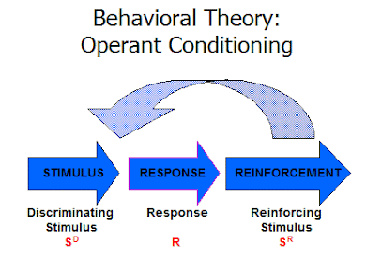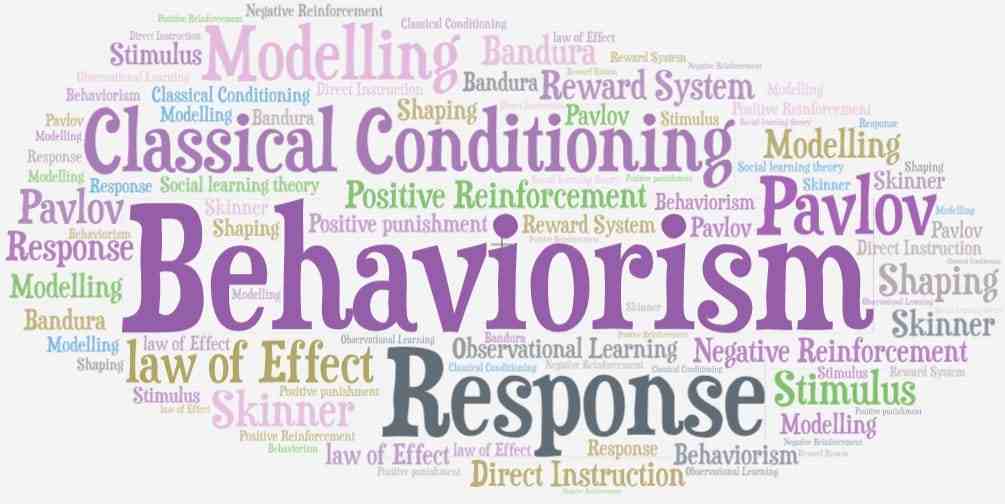Explanation of the Theory of Behaviourism
The theory considerately stated as behaviourism escalated within the role of psychology, this theory can consummate affectively put an impact on both human and animal. The area of study in the given subject-matter came into the light in the 19th century. The moulded reactions which headed to broaden up the scope of this theory, apprehension of this theory collects the insights and thoroughly studies the behaviour in regard to the actions and other objectives of both animal and human.
In the purview of hypothesis termed as behaviourism creates a visionary process, where the process of self-assertion is used. Under this conduct there tends to be evaluate the behaviours and other actions of the respective object (be it human or animal).
Mind is beautifully created and dynamic in nature creations, it plays with the roles, the mannerism and other parameters of an individual. As quoted by some behaviourists, is not easy to get a reflection of someone's brain. The complicated systematization works under the extent of brain. Examining the reasoning with their thoughts and some other futuristic visions, the behaviourists gravitates towards leaning regarding the behaviour and actions of an individual.

Describing Methodological Behaviourism
Relating this type with the title and context of a paper which was published which is a pronunciamiento of the early stage behaviourism. This published paper later given a stipulation regarding the definition of behaviourism which states, the Determined Science of Behaviour, is called the study of affairs of behaviourism. That is how the principles which furthermore to the theory carried the definition to the whole new level. After the sort of success which was attained in the field of behaviourism, Watson was entitled as the 'Founder'.
You should also check out: Taylor's Theory of Motivation | Objectives and Principles
Chronicle of Radical Behaviourism
This hypothesis revolves around the work and achievements which was gained by B.F. Skinner. The focal point which later and greater sense turned into which widen up the context of science by giving about classification instead of pushing mere methods.
According to Skinner, the manifestation growth was entirely related to the mental process which cannot be seen by naked eyes. Wholesome beginning and better understanding relates skinner clarity towards this behaviourism, in order to understand relationship which occurs between the behaviour of an animal and its surroundings.
Expounding Classical Conditioning
Behaviourist evolves humans learning behaviour through conditioning, which relates or enhances the environment such as sound and a response and how humans behave when they hear sound. The prime studies of behaviourism states that the difference among the two types of conditioning is classical conditioning which associates with psychologists and operant conditioning which is related to B.F. Skinner. The Skinner theory is recognised by the ideology which states that learning is a change in function in overt behaviour. An individual's response to events is identified by the change in behaviour that happen around the surrounding of environment.
There are three stages of classical conditioning that are identified by different terminology through stimuli and responses at each and every stage. The three stages of classical conditioning are before acquisition, acquisition and after acquisition.

Example
Positive enforcement is one of the very common example of Behaviourism. If a student gets full marks in a spelling test, then he is awarded with a small treat. This enables the students to work harder in the future so that they can be rewarded again.
You should absolutely use our case study help services from experts if you want to get good grades on your case study assignments.
Application of Behaviourism
Presently, the principles of behaviourism are used to treat challenges of mental health which includes different kinds of phobias with the application of therapy in order to strengthen the responses. A therapy which treats autism is based on the principles of behaviour is a therapy of Applied behaviour analysis. Therefore, the theory of behaviourism is still used today by the mental health professionals as it is relevant and applicable in the field of psychotherapy and education through its established theories and concepts.
The theory of behaviourism is applied in the classrooms to organise and structure the behaviour of students. The behaviour of a student can be recognised through various techniques which includes the system of reward, praising or encouraging the student, continues feedback for improvement, positive reinforcement and non-punitive discipline.
Behavioural theory can be applied in the classrooms through the following ways:
- A topic can be discussed in the classroom which will enable the teachers to lead the classrooms.
- Students should attentively listen to the topic discussed which will help them to have a better understanding.
- After discussion of the topic, the teacher has to assign a task to the students.
- Students have to complete the task and wait for the feedback.
- The feedback is given to the students after which the next task is assigned to them.
- Every feedback helps in improving the performance of the student with the ability of learning the matter assigned in task.
Behavioural Psychology

The application of behaviour to our minds which helps in understanding and having a better perspective of application of behaviour is Behavioural Psychology. The biggest strength of enduring behavioural psychology helps in observing and measuring the behaviours as behaviourism is based on the keen observation of behaviour. This makes it very easier to collect and arrange data, while conducting the research.
FAQs By Students:
1. Who developed Behaviourism?
John B. Watson, in 1924 publication derived the theory of methodological behaviourism, which ignored other introspective methods by measuring observable behaviour in order to understand the behaviour in a better way to have a clear perspective.
2. How does behaviourism affect human behaviour?
The focus on creative ideas which enables in recognising that behaviours are learned by coming in contact with the environment. There is a very little influence of the inherited factors on behaviour.
3. How is behaviourism used in everyday life?
When teachers in class praises or rewards their students by giving a party or special treat for conduct of their good behaviour. The reward of party or treat can also be undone by giving them punishment, if the students misbehaves in class.















